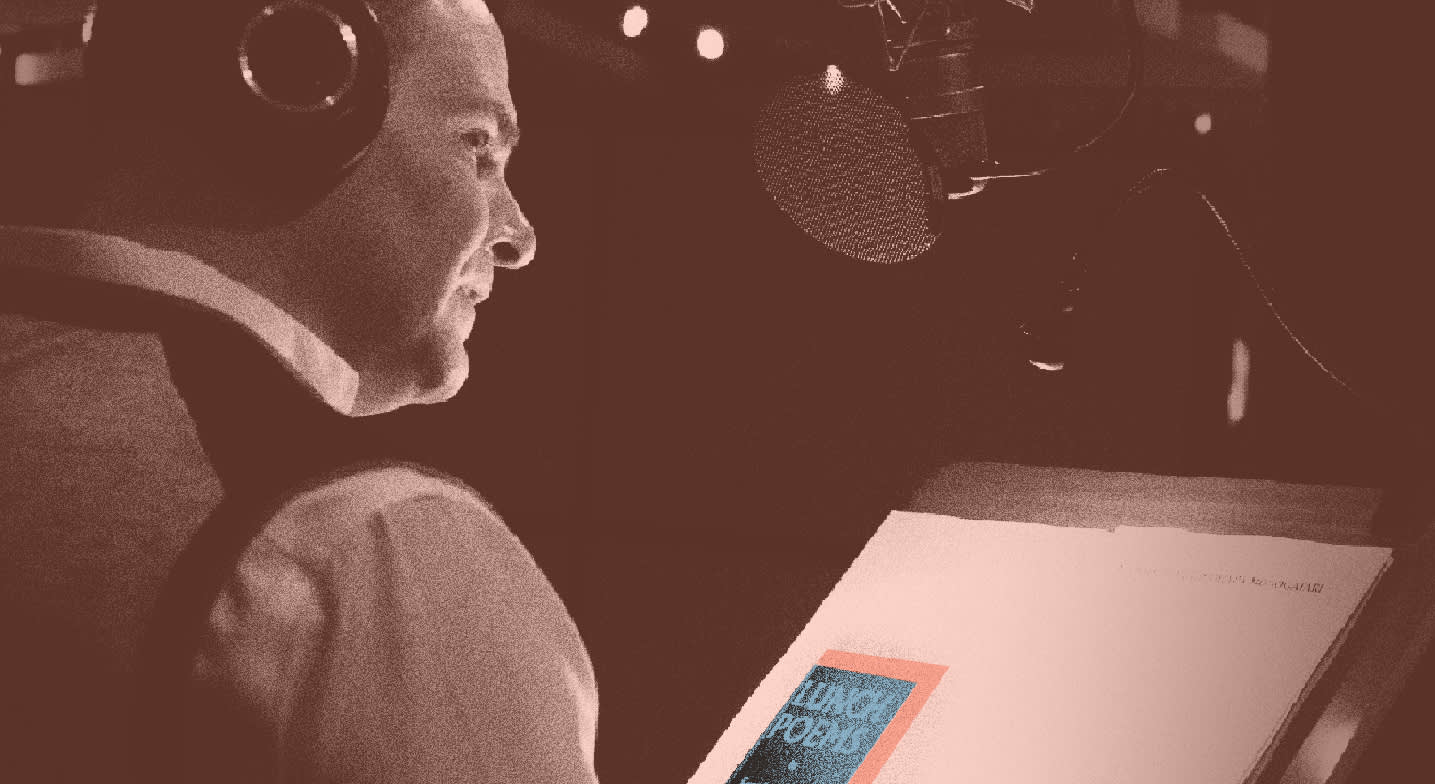In the opening episode of Mad Men’s second season, Don Draper read a mesmerizing passage from Frank O’Hara’s “Meditations in an Emergency.” The result was an immediate and sustained jump in sales of the poet’s work — it seemed that, just as Frank O’Hara (along with other “New York School” writers like John Cheever, Jane Jacobs, and Sherwood Anderson) directly influenced the show’s creator, Matthew Weiner, so Weiner directly influenced a twenty-first century revival of O’Hara’s work.
It’s only fitting, then, that he is narrating a new edition of Frank O’Hara’s Lunch Poems for Audible Studios. Weiner spoke with the audiobook’s producer, Susie Bright, about how the poet inspired him to create Mad Men, and particularly its iconic protagonist.
What it was like, as a person and as a writer, to discover Frank O’Hara

Matthew Weiner
Interview pt. 1
I read Frank O’Hara pretty late. I was already a writer and certainly wasn’t writing poetry anymore. I felt like there was someone standing next to me who was the wittiest and most sarcastic and most gloomy and beautiful writer that I had encountered in a long time.
As a writer, all I wanted to do was make sure I could be that honest, and that I could get in touch with that voice — whatever that voice was — and that I wasn’t afraid to be profane or grotesque, or self-loving and self-hating in my work. Frank O’Hara is about honesty. There is a voice there that is about honesty, about “this is who I am.”
I wrote a poem when I was in college that was for my college thesis, and it was about how I would never use a pen name and that I was basically a stripper, in some way. When I read Frank O’Hara, I was like oh, here it is; this guy is really a stripper.
What Frank O’Hara brought to the character of Don Draper

Matt Weiner
Interview Pt. 2
The reason why Frank O’Hara was such a good intersection with the character of Don Draper in Mad Men was because … not only the period that he’s writing, but also the voice he’s writing in; first of all, you are getting a New York that I couldn’t afford to shoot. Second of all, you are getting this very modern, contemporary sense of personhood that is existing inside Don, no matter what he looks like. I wanted to show that Don Draper is a curious person. His costume and his face are different than the person who is inside.
Then, when I actually started reading the poems the reason that it inspired me to use them at all was this voice of honesty. He is the transparent eyeball. He is the observer and, for Don to feel this way inside … Frank is gay. He is a New Yorker. He is Irish. He has nothing in common with Don Draper in many ways, but the voice inside says there’s an artist here who is experiencing the world and is not necessarily jiving with it.
He is also the great combination of the high and the low. That’s what was really revolutionary about him. Obviously the Beat poets are about this in general about everyday life and how you fit Buddhism into car culture. These two things go together, but what I love is, there is the high and the low. I would say that you don’t expect Coca-Cola to appear in a poem. I love that Frank had that confessional voice that Don couldn’t really express.
On reading these poems out loud

Matt Weiner
Interview Pt. 3
The thing that caught my eye that was different about reading the poetry out loud and reading the book straight through aloud was how much love there is in it. I always felt like there was definitely a little carnality in places and there is definitely a little profanity. I recognized all that, I knew all of that, but what I felt here …
You read a poet like this and you know that they’ve passed away, and there is an extra irony to it. And today I felt like he was alive and he was writing these poems and he was talking about how much he was in love and how strong those feelings were when he was in love and how bad it felt to be rejected and the kind of passion of seeking another person.
I don’t know, I never really felt that in there before. I really felt more “New York” and more a writer’s point of view. I think I really have always liked this about them, but felt it extra strongly today, probably because of where I am in my life at this point.
When I was in college, I was told when we studied poetry that poets write about certain things: love, life, death, birth. But one of those things was about writing. I really heard him talking to me about writing and he seemed very much alive, just feeling it all at once there.
I also felt there’s a structural repetition, which you might run away from if you were writing these all in the same day. There is something about the payoff of these last, incredibly painful, insightful, cutting, explosive lines that just … and and and and and and, boom.
For something that is supposedly thrown together in a stream of consciousness, they are incredibly structured and you realize that when you read them. That’s our job; to lie about lunch, to lie about how easy everything is. That’s to keep other writers off your tail.

Matt Weiner
Reads Ava Maria

Matt Weiner
Reads Lana Turner





